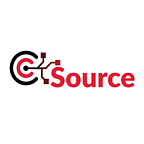Blockchain Technology Transforming Healthcare Data Management
Big data is the most powerful asset and the most complex problem for which we are trying hard to find a solution. We want this big data in healthcare management to track medical records, track and trace infection, medical supply chains, manage healthcare talents and to plan for economic futures.
But the problem is that we can’t store this data effectively to make it a current asset and future resource. This was the case until the arrival of a revolutionary tech called Blockchain. Blockchain technology is basically a data storage system with excellent attributes and applications for healthcare data management. Data management opportunities with blockchain are endless. Hence, to portray the influence of blockchain development on healthcare management, a few excellent use cases are explained in this blog
How does Blockchain technology transform healthcare data management?
Healthcare providers are facing challenges to stores healthcare data. For this problem, blockchain development is the only solution, and here are a few use cases of how blockchain technology improves healthcare data management.
Security:
Blockchain utilization in healthcare data management is the most secure way. Basically, the building blocks of blockchain are blocks where each block contains a cryptographic hash of the previous block making it a sturdy virtual chain that is impossible to break, hack or change. More than security, the blockchain provides data access to healthcare providers and also for patients to track their medical data and ensure that their privacy is well protected.
Patient Engagement:
Through Blockchain, patient engagement can be made better. If a patient is given access and control over his medical records. He/she can track his medical status, changing diagnosis, and can even limit access where providers can be given access to the data like blood group or if he/she wants to hide the sensitive tests like HIV, it can all be done if a blockchain is used for data management
Decentralization:
Instead of being kept in one area, data is now kept across a distributed network of nodes thanks to blockchain technology. As a result, the Blockchain network has no single point of failure, increasing the system’s resilience and decreasing its susceptibility to attackers.
Single source of data:
If a blockchain is used in healthcare data management, it will provide a single source of data from which healthcare providers and patients get the data and work together to harmonize the efforts at anytime and anywhere.
This single data source will help in giving a correct diagnosis between multiple appointments. Even if a patient changes their doctor, this data will help the new specialist to further provide the right diagnosis and medication.
Smart Contracts:
On the Blockchain, smart contracts are self-executing contracts. They can be applied to the healthcare industry to enhance numerous services. Smart contracts, for instance, may automate a number of procedures, including managing the supply chain for pharmaceuticals and processing insurance claims. This may result in cost reductions and general increases in the effectiveness of the healthcare system.
Medication reconciliation:
It is one of the most difficult and risky patient management tasks. Patient safety is a concern that needs to be governed here. For that blockchain will help with its centralization, it will detect the duplicity if the prescription of two providers is the same and will prevent the patient from taking overdosage. Also, will detect the prescribed medicine that was discontinued by the patient once due to some problems and will inform the provider about the after-effects suffered by the patient with the prescribed medicine. Like this, fraud, abuse, and addictions related to medications can be prevented with blockchain development.
Improved Data Quality:
The data can be verified and validated in real-time with the blockchain. This means the data will always be accurate and up to date. That is a great way to improve healthcare data quality, better decision-making, and improved patient outcomes.
Patient Identification:
Patients’ data is not static, they move places, change names, switch providers, move houses, buy new insurance plans, and have children. So, ensuring the patients’ identity follows her/him throughout her complete life journey along the care continuum without deletion, duplication or other errors is a very difficult task.
Patient misidentification could lead to wrong diagnosis due to the lack of access to important health data. It also creates bad patient experience, which might negatively affect satisfaction levels.
We can be happy, if there is any national patient identifier. But in the absence, blockchain can be the next big thing for keeping and tracking patient data regardless of moving parts and changing conditions
Final thoughts
The use cases seen so far are the ways that the blockchain is going to change healthcare data management. And it is evident that-, Blockchain sure will play a big part in data management in the healthcare domain. The use cases of blockchain are not only restricted to healthcare but have spread to entertainment, travel, supply chain, finance, insurance, and many more.
One day for sure we will see the ruling of Blockchain technology in every sector making the way for efficient data management and utilization.
